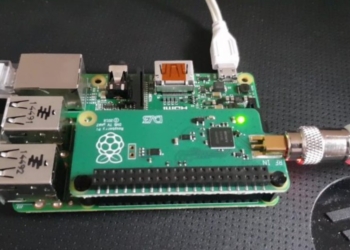Samsung Electronics Co. has reportedly secured a deal to supply advanced memory chips to Nvidia Corp., the leader in artificial intelligence (AI) and graphics processing units (GPUs). Samsung shares jumped more than 6% on the news, as the company aims to challenge its rival SK Hynix Inc. in the lucrative AI chip market.
According to sources familiar with the matter, Samsung will provide high-bandwidth memory (HBM2E) chips for Nvidia’s next-generation GPUs, which are expected to be launched in 2023. HBM2E is a type of memory chip that offers faster speed and higher bandwidth than conventional DRAM chips, making it ideal for AI and high-performance computing applications.

Samsung is the only company that can mass-produce HBM2E chips at the moment, giving it an edge over SK Hynix, which is still developing its own version of the technology. Samsung has been investing heavily in its memory chip business, especially in advanced technologies such as HBM2E and 3-nanometer (nm) process. The company recently announced that it has started mass production of 3nm chips, beating its competitor Taiwan Semiconductor Manufacturing Co. (TSMC) to the market.
Samsung’s deal with Nvidia is seen as a strategic move to diversify its customer base and reduce its reliance on Qualcomm Inc., which is its main client for mobile processors. Samsung also supplies memory chips to other tech giants such as Apple Inc., Amazon.com Inc., and Google LLC.
Nvidia to Boost Its AI Leadership with Samsung’s Chips
Nvidia is the undisputed leader in the AI and GPU markets, with a dominant share of over 80% in both segments. The company’s GPUs are widely used for gaming, data centers, cloud computing, autonomous driving, and other AI applications. Nvidia’s GPUs are powered by its proprietary CUDA software platform, which enables developers to create and run AI programs on its hardware.
Nvidia’s partnership with Samsung will help the company maintain its technological edge and meet the growing demand for its products. Nvidia’s GPUs require large amounts of memory to process massive amounts of data, and Samsung’s HBM2E chips can provide the necessary speed and capacity. Nvidia’s next-generation GPUs are expected to offer significant improvements in performance and efficiency over its current models, which are based on TSMC’s 7nm process.
Nvidia is also expanding its AI portfolio with acquisitions and collaborations. The company is in the process of acquiring Arm Ltd., the British chip designer that provides the architecture for most of the world’s smartphones and IoT devices. Nvidia also recently announced a partnership with Google Cloud to offer AI services on its platform.
Both Samsung and Nvidia to Benefit from the Global Chip Shortage
The global chip shortage that has plagued various industries since last year is expected to continue until 2023, according to industry experts. The shortage is caused by a combination of factors, such as the Covid-19 pandemic, trade tensions, supply chain disruptions, and surging demand for electronics.
The chip shortage has created opportunities for Samsung and Nvidia, as they can charge higher prices for their products and gain more market share. Samsung has reportedly increased its contract chip prices by up to 20% this year, while Nvidia has raised its GPU prices by up to 30%. Both companies have posted record profits in recent quarters, thanks to their strong chip businesses.
Samsung and Nvidia are also investing heavily in expanding their production capacity and R&D capabilities, to meet the future demand for their chips and stay ahead of their competitors. Samsung is building a new plant in Texas, where it plans to spend more than $10 billion to produce 3nm chips. Nvidia is also building a new campus in Santa Clara, California, where it will house its AI research center.



















